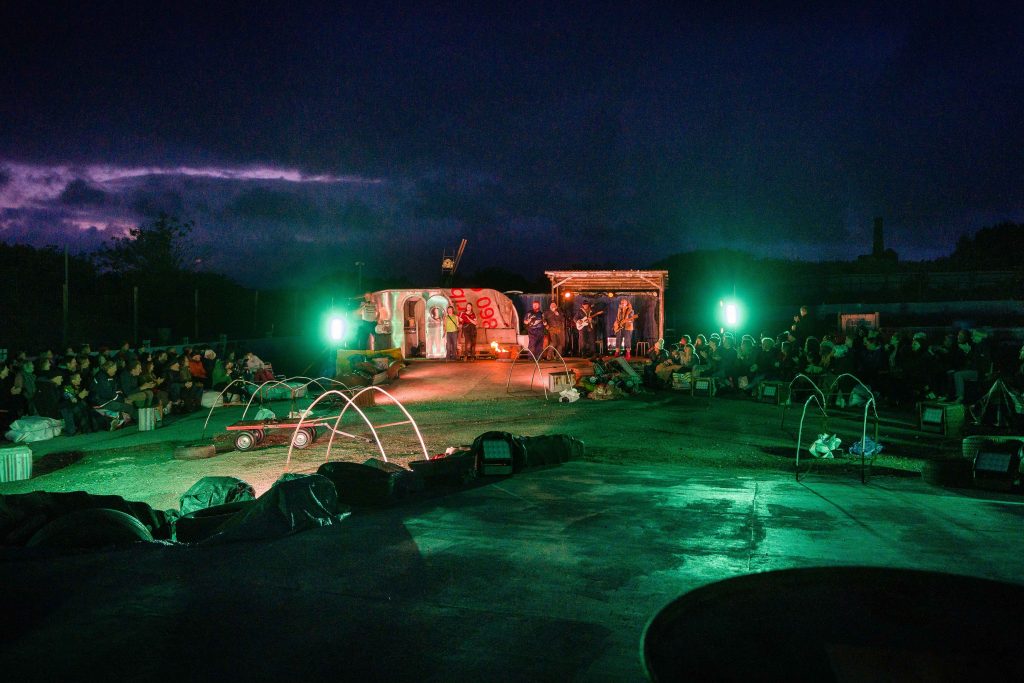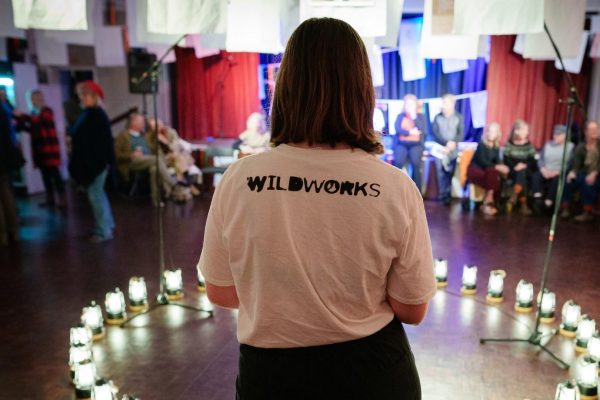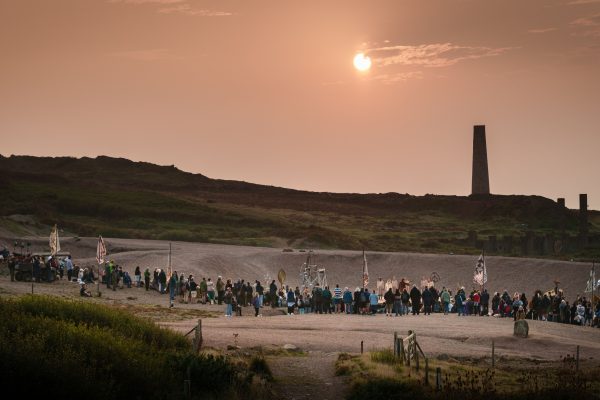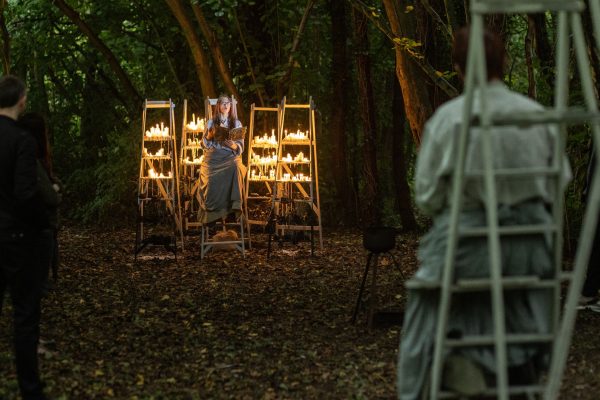Imagine a battered 1958 Cadillac Eldorado, possibly once Elvis’s, stranded in the heart of Cornwall’s mining country, right in the middle of a roaring banger racing circuit. This was the home for The Kneebone Cadillac, a darkly funny, heartfelt comedy-drama by Carl Grose, brought to life under the direction of Kyla Goodey in July 2024 in United Downs Raceway.
But this wasn’t just a show. Wildworks took a bold leap, using The Kneebone Cadillac as a trial run working to Theatre Green Book standards, a fresh approach to making theatre greener and more sustainable. Right from the beginning, the entire creative team embraced the challenge, committing to blend storytelling with responsibility for the planet.
What is the Theatre Green Book?
The Theatre Green Book is a UK-wide guide to making theatre more sustainable. Created by theatre-makers, sustainability experts and cultural bodies, it includes clear checklists and a three-tier system to help productions, venues and organisations improve step by step.
We were the first theatre company in Cornwall to make a production to Theatre Green Book standards. As far as we know, we were also the first company anywhere to make an outdoor, site-specific show to Theatre Green Book standards.
As a Company we agreed that our target was to achieve the Baseline Standard. The Green Book recommends the use of Materials Inventories for Baseline and Intermediate Standard productions. A Materials Inventory is not as accurate a carbon-counting tool like more sophisticated Carbon Calculators, but it’s much simpler to use. It allows us to see where the materials in a show come from, and what will happen to them when the show is over.
The Green Book guidance set clear targets for sourcing and disposal.
Baseline Productions
50% of materials should have had a previous life
65% of materials should be reused or recycled afterwards.
Intermediate Productions
75% of materials should have had a previous life
80% of materials should be reused or recycled afterwards.
Advanced Productions
In Advanced productions, all materials should have had a previous life and should be reused or recycled afterwards.
Calculating Percentages
The materials in a production should be assessed as follows:
• Set and scenery: by weight (where known) or number (if weight not known)
• Costumes: by sq.m (manufactured costumes), or number of items (ready to wear costumes)
• Props: by weight (where known), or number of items (where weight not known)
• Technical equipment : by weight (general & stage equipment) and number (lights etc)
The production should reach the target in each category.
Teams should take a sensible view of how to cluster items by number. For example, for props, one ‘item’ might be a set of teacups and saucers, a sofa, or a tree. For costumes, one item might be a three-piece suit, or a pair of jeans. For technical, one item might be a light, or set of gels. The aim shouldn’t be to ‘game’ the system to ‘pass’. It’s to give the team an honest understanding of how responsible the production is.

The Headline Data
We exceeded the Baseline Standard target of 50% in all the elements of The Kneebone Cadillac and achieved Intermediate and Advanced standards on some elements.
Technical Equipment
Sources: Advanced / 100%
Destination: Advanced / 100%
Large Built Elements
Sources: > Baseline / 67%
Destination: > Intermediate / 97%
Small Elements
Sources: > Baseline / 63%
Destination: > Intermediate / 90%
Site Infrastructure
Sources: > Intermediate / 88%
Destination: > Intermediate / 83%
Costumes
Sources: > Baseline /74%
Destination: Advanced / 100%
Theatre Green Book Learnings and Recommendations
As a company working outside, not in a traditional black box venue, there are significant elements of our production process which are outside of the scope of the materials inventory; e.g. power, travel, transport, accommodation, catering. These were all things which we considered carefully and positive actions were taken to reduce environmental impacts in all these areas but these actions are not reflected in the Materials Inventory. For example, we used a combination of mains power and battery banks to avoid the use of petrol or diesel generators, the lighting and sound equipment was low-power and/or battery powered, the non-local cast were both house and car sharing, etc.
The materials inventory isn’t perfect. For example, a small painted plywood sign made from off-cuts counts the same as a massive shipping container by simple tally, a quirk that shows the limits of this tool. But the trade-off? It’s straightforward and gets the whole team talking and communicating across departments, sparking real conversations about sustainability from design to get-out.
Most importantly, having a clear target, the Green Book baseline, kept sustainability front and centre throughout rehearsals and production. It built a shared sense of responsibility and sparked ideas for future shows.
Looking ahead
If we want to deliver full carbon neutral or carbon net positive productions, we’ll need deeper, more rigorous and detailed CO2 calculations. But the Theatre Green Book is a solid step forward, a useful and evolving toolkit that can stand alone, or sit alongside other climate-conscious resources like Julie’s Bicycle’s Creative Climate Tools, or other bespoke project-specific calculators.
We’re looking forward to keeping you updated on our sustainability journey. Sign up to our newsletter so we can keep you in the loop!
Photography by Steve Tanner.




